Agriculture news in any sector almost invariably boils down to human news, where livelihoods of large numbers of producers are made possible or stripped away by larger economic forces. Smallholder coffee farmers — those people responsible for producing the vast majority of the world’s green coffee — face innumerable challenges locally, everything from natural disasters or disease outbreaks to labor shortages or a lack of infrastructure. The list of potential maladies is virtually limitless, and changes with each season.
This makes addressing smallholder farmers and the issues they face in a singular manner an impossibility. Yet most producers — anecdotally at least — face a similar reality in farms that are perennially barely profitable, if at all. Though none of these harsh realities were “new” in 2015, we heard of new twists and updates on the residual damages of Leaf Rust in parts of Central America; the worsening problem of potato taste defect in East Africa; the nearly yearlong slump in the commodities market; the widening generational gap on the farm; and the reported effects of climate change in certain high-altitude regions, to name just a few.
For our 2015 year-in-review, we return to the stories that a) Regard the issues most immediately pressing and threatening to smallholders, and in turn, the global coffee supply in the short- and long-term; and b) Those that, although they may be localized to a specific cooperative or even farm, offer some perspective or strategy that may have some scalable value elsewhere in the coffee-growing world.
Women-Focused Ugandan Cooperative Earns 2015 SCAA Sustainability Award
The Bukonzo Joint Cooperative Union, whose women-centered value chain development framework has proven successful in Western Uganda and beyond for more than a decade, was given the SCAA’s Sustainability Award for 2015.
From Problem to Opportunity in Coffee-Reliant Burundi (Video)
Burundi is one of the poorest coffee-producing countries in the world, and this is by no means coincidental to a lack of development in the coffee sector. UN experts in food security in 2013 estimated that coffee accounts for 80 percent of the country’s export earnings, and represents the primary financial means for more than half the population, or approximately 750,000 families, many of whom are smallholder farmers.
Cyclone Pam’s Horrible Destruction of Lives and Coffee On Tanna Island, Vanuatu
The full extent of the damage to the coffee industry in Vanuatu may not be known for months, even years, but aid is unquestionably needed. Winds of 300-plus miles per hour devastated much of the South Pacific island nation in March, resulting in limited food, water, shelter and electricity, as well as a death toll of at least 30 people.
New ICO Study Takes Long View of Continent-Wide Sustainability Issues in Africa
Outside of some notable production gains this past crop year in Ethiopia and Uganda, many African countries remain in a downward production slide. The causes for this are many, but some notable hindrances to a continent-wide sustainable coffee segment include lack of profitability tied to lack of production, limited organizational opportunities for smallholder farmers, lack of marketing, and vulnerability of coffee farmers to low prices.
Coffee Kids Programming Reviving with Neumann Foundation Partnership
Coffee Kids is alive. The 27-year-old nonprofit organization committed to improving the livelihoods among coffee farm community families in Latin America has signed a memorandum of understanding with the Hamburg, Germany-based Hanns R. Neumann Stiftung foundation (HRNS). According to the initial agreement, Coffee Kids will be part of the foundation’s North American Operations.
Why farmworkers? Why Brazil?
Farmworkers because they are more numerous and more vulnerable than the smallholder farmers who have been the focus of most sustainability initiatives in coffee, yet remain largely invisible. It is time for engagement to raise our collective farmworker IQ and build the broad-based awareness that is a necessary precondition for action.
The DRC’s First Ever Cupping Competition of Traceable Coffees
Several nonprofits, NGOs, and interest coffee traders and roasters organized the first cupping competition of its kind of traceable coffees from the Democratic Republic of Congo, Saveur du Kivu, which took place in June.
As Investment in Retail Booms, How Can We Initiate Investment Toward Farmers?
I am in the Netherlands with a colleague, where we are getting ready to participate in the Sustainable Food Lab Summit, a meeting that gathers together different stakeholders in supply chains and facilitates a great discussion about finding solutions to ensure the future of our global supply chains. It is against this backdrop that I start to process the news that Blue Bottle just raised $70 million dollars in venture capital. This is after Philz Coffee raised $15 million and just 18 months after Blue Bottle secured $24 million dollars injection of venture capital funding.
Listen Closely and You Can Hear the Coming of Coffee’s Full-Blown Labor Crisis
There are some companies in coffee that are pretty good at identifying and seizing opportunities in the marketplace. The dizzying pace of innovation and the occasional introduction of disruptive technologies over the past 10 years can attest to that. And lots of companies are effectively identifying and heading off challenges in their supply chains. But we haven’t been as good at identifying collective threats before it is too late.
World Bank Invests Large in Sustainable Coffee Development in Vietnam
The World Bank Board of Directors has approved $315 million in credits to go toward agriculture and education development in rural communities in Vietnam, with a substantial but unspecified portion of the loan focused on rejuvenation and development of sustainable coffee production.
Women Farmers Win at First Myanmar National Cupping Competition
The top two spots in Myanmar’s first ever national cupping competition, held in Yangon, went to two women farmers from the village of Pway-Na-Phar near Ywangan, in the Southern Shan State.
How Biochar Could Answer Some of Coffee’s Most Burning Questions
Despite its obvious upsides, the application of biochar in coffee farming has largely only existed on a hypothetical level. Until now. The nonprofit Radio Lifeline received the initial test results from 18 test plots associated with six different coffee farms and cooperatives in Rwanda. Despite the relatively small sample size of the cooperatives that have reported yields — only 66 trees in total — the results are astounding.
As Coffee Farms Shrink, Smallholders will Require More than Just Market Incentives
Coffee farmers are aging. Children of farmers don’t see a future in farming. Many farmers are making less than a dollar a day per person in their household. Farm sizes are small and continue to shrink due to population pressures. Small farmers lack access to technical assistance and financial services and are often price takers in the market. This litany of challenges is enough to make anyone walk away from farming coffee.
Myth: Farm Labor is Only An Issue for Big Roasters Sourcing Big Volumes
MYTH: Farm labor is only an issue for big roasters sourcing big volumes of coffee from big farms. REALITY: Big isn’t (necessarily) bad, and small isn’t (necessarily) beautiful.
Q&A with New Colombian Coffee Growers Federation CEO Roberto Vélez Vallejo
Following a rigorous election process that began after the resignation of Luis G. Muñoz in May, the Federación Nacional de Cafeteros de Colombia (FNC) appointed Roberto Vélez Vallejo as CEO, the organization’s top leadership position. A child of coffee farmers, Vélez Vallejo was most recently Colombia’s ambassador to Japan, and has also served as ambassador to the United Arab Emirates and Malaysia.
Sustainable Harvest Presents Initial Findings of Fermentation Research Project at Origin
A team of researchers and quality-control specialists from the relationship-pioneering green coffee importer Sustainable Harvest have presented initial findings from an initiative called Experimentos En Cafe, which supplies farmers at origin with an iPad-based toolkit designed to gather data and help determine best practices for post-harvest coffee processing. The specific goals of this first step in the project were to introduce the toolkit to a variety of farmers and gauge their interest and ability to use it, and then to gather an initial round of data to form a baseline for post-harvest refinements and experimentation.
Side Selling: Short-Term Benefit to Producers and Long-Term Threat to Supply
Side selling refers to a situation where a producer or cooperative does not comply with a contract and chooses to sell their coffee to someone else. This can happen in markets with rising coffee prices, when the local price for the coffee exceeds the price agreed upon in a contract. When farmers or their cooperatives decide to side sell, they risk not being able to fulfill their contracts. This in turn erodes their reputation, and their ability to receive credit and fully participate in the market.
Producers Bear Brunt of Price Risk in This Slumped Green Coffee Market
For a coffee farmer whose livelihood depends on the sale of their crop, a price drop of cents in the global price of coffee can be the difference between just-getting-by and a successful year.
International Coffee Day Matters on Fundamental Human Levels
Oct. 1 was the inaugural International Coffee Day, a concept created by the International Coffee Organization and supported by its 39 exporting member countries and 35 importing member countries in writing, as well as by dozens of nonprofit organizations, membership organizations and other NGOs with ties to coffee production and trade.
Michigan State Leading $1.8 Million Farmer Assistance Program in Rwanda
Despite the incredibly fertile coffee ground found throughout the African Great Lakes region — which comprises coffee-producing countries including Rwanda, the Democratic Republic of Congo, Kenya, Burundi, Tanzania and Uganda — many producers there have been hampered in recent crop years by generally low yields and potato taste defect.
Farming Must Be Sustainable for Business to Be, Says Nespresso CEO
Beverage companies will need to take a more active role in sharing value throughout the coffee supply chain, especially in the form of long-term relationships with farmers, if those companies have any hope of maintaining long-term profitability. This was the driving message of a speech delivered by Nestlé Nespresso CEO Jean-Marc Duvoisin at the recent Global Coffee Forum presented by the International Coffee Organization in Milan, Italy.
CRS Unveils Three-Year, $4.5 Million ‘Coffeelands’ Project
Through some 20 projects in 14 countries across Africa, Asia, Latin America and the Caribbean, the agency has been working in the coffee sector continuously since 2003. This latest Coffeelands initiative will focus specifically on two fronts: CRS’s “Blue Harvest Approach,” which seeks to assist in coffee agronomy and post-harvest water management processes; and initiatives that empower coffee farmworkers, whom the Coffeelands organizers describe as “the most numerous, most vulnerable and most invisible actors in coffee supply chains.”
In Rust-Ravaged Oaxaca, Indigenous Farmers Work to Reclaim Coffee
It has been nearly three full years since the coffee leaf rust epidemic first set out on its destructive path through some of the most established growing regions in Mexico and the Central and South Americas. Media attention toward the natural crisis has significantly waned during that time, peaking at roughly around late 2013 and into 2014. Yet as much as the coffee industry at large might wish to stuff leaf rust into a past problems file, it remains a serious threat to farmers today, either through its appearance in new crops or through what have been crippling residual effects to certain regions and farms.
Conversations in Price Risk Management: Shared-Cost Insurance
“Price Risk Management is one of the most misunderstood topics of the coffee crop cycle.” This is how my conversation on PRM with Jorge Cuevas, the Chief Coffee Officer for Sustainable Harvest, began.
Colombia’s FNC to Present Global Economic Accord Based on Farmer Profitability
Colombian coffee leaders shared initial plans 10 days ago for a global accord with a focus on profitability of coffee farmers to ensure the economic sustainability of the commodity coffee sector at large.
Coffees Marketing Growers as Protagonists are More Expensive, Analysis Suggests
How are high-end roasters differentiating their coffees in an increasingly crowded and quality-obsessed marketplace? And what might this mean to the bargaining positions of coffee farmers? These questions are at the heart of a new marketing analysis by the team at the Transparent Trade Coffee (TTC) Project.
Conservation International Leading Broad Global Framework for Coffee Sustainability
The U.S. nonprofit Conservation International issued a call to action yesterday at the United Nations climate negotiations in Paris, asking industry to help make coffee “the first sustainable agricultural product in the world.” The group says it plans to formalize partnerships with numerous public and private organizations throughout the coffee and sustainable trade segments, making them part of the “Sustainable Coffee Challenge.”
Nick Brown
Nick Brown is the editor of Daily Coffee News by Roast Magazine.



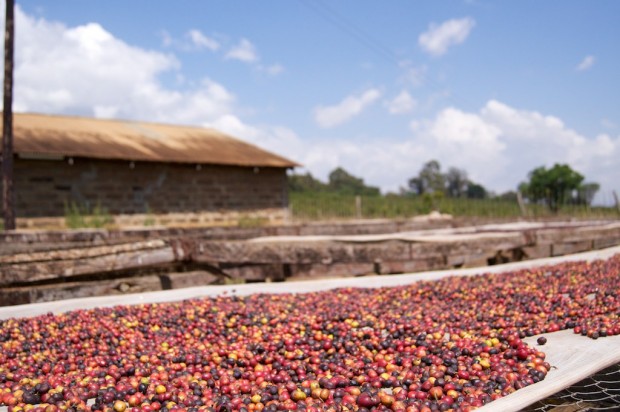
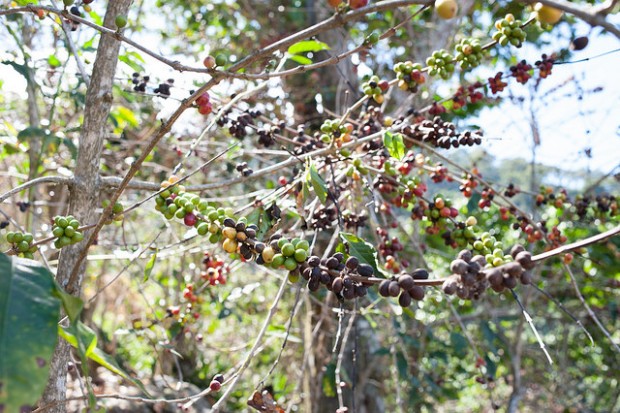
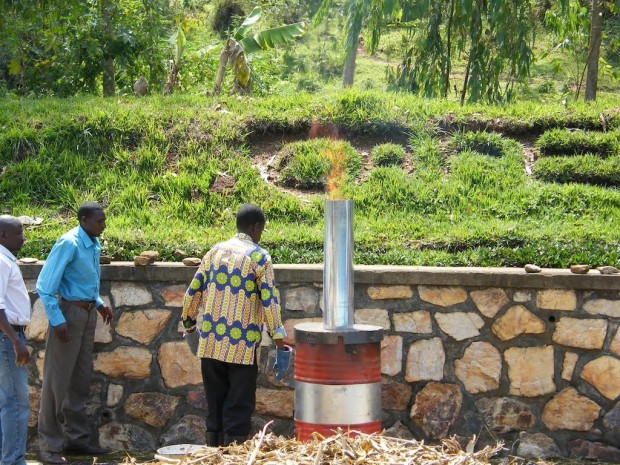
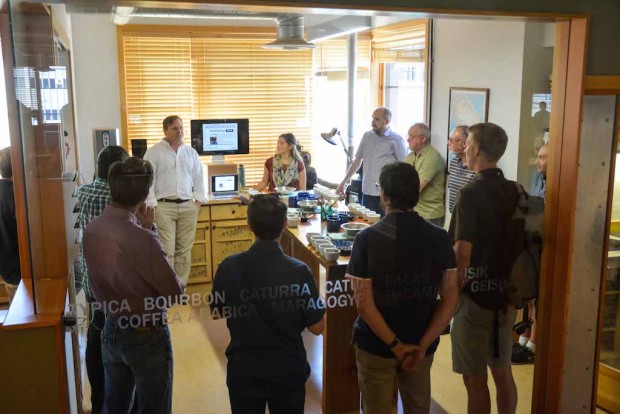
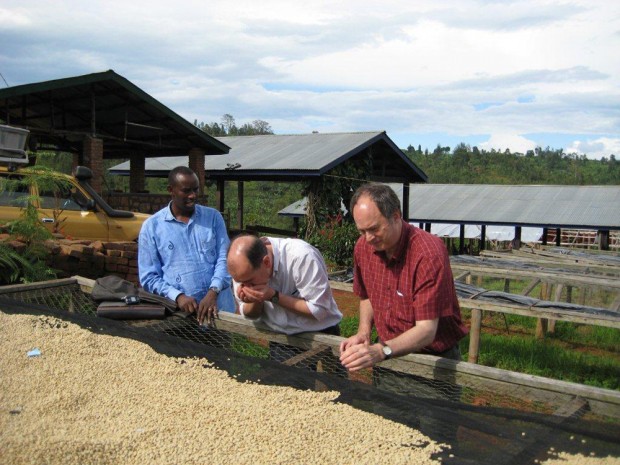
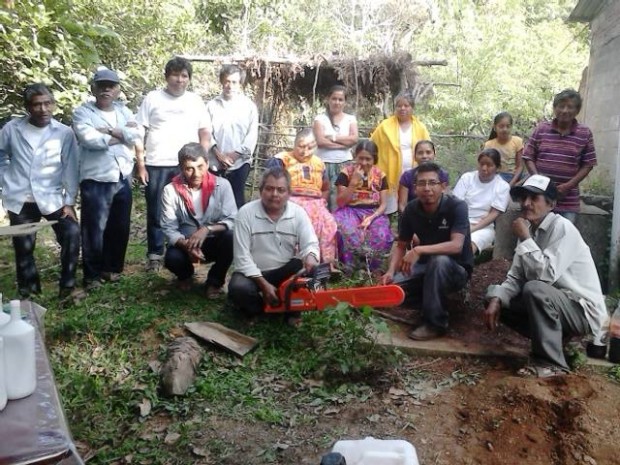



Comment